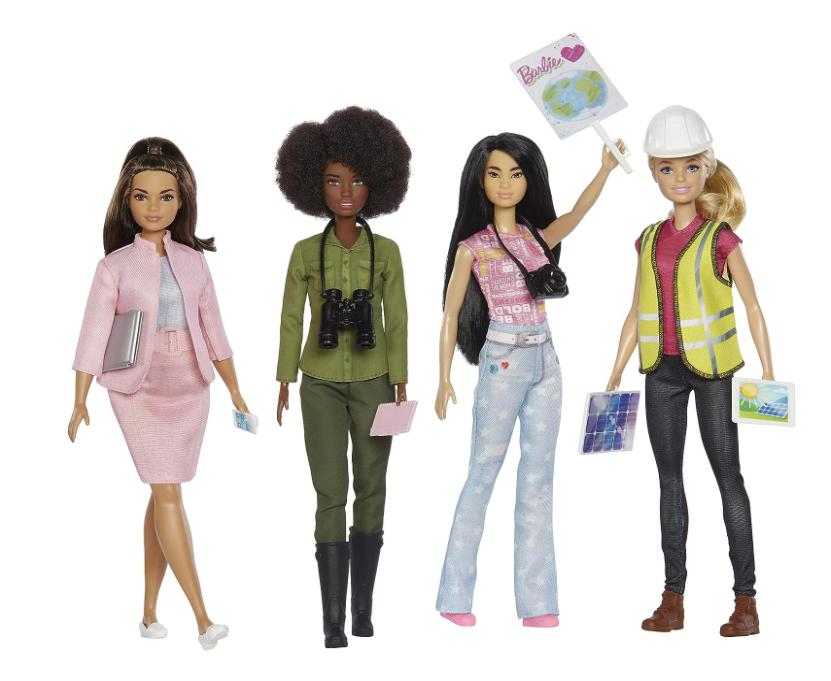We mean everyone: Bringing adversaries into the climate action conversation

New York Climate Week is upon us and it’s hitting like a stack of bricks (which, incidentally, is what my schedule looks like this week).
Everyone is buzzing about Apple’s new sustainability video, and kudos to Apple — the production quality, Octavia as Mother Nature, Tim Cook front and center on this topic — so much of it is brilliant (what’s not so brilliant is a business model based on planned obsolescence).
There’s also buzz — or is there a word for a bunch of simultaneous sighs? — about the Global Stocktake, one focus of this year’s COP, which is an effort to evaluate the progress that each country has made since the Paris Agreement. Adam Elman at Google assembled helpful summaries for you to review. TLDR: We’re not meeting the emissions goals set and there is a fast-closing window to avert the humanitarian crisis.
And then there’s COP28 itself — who’s going, who’s boycotting, whether it’s been co-opted, whether there’s any value for civil society to attend anymore, etc.
So, lots of buzzing and hemming and hawing. And, yet I also hear crickets. Pause, quiet. Do you hear them too?
That tinnitus is the sound, or lack thereof, of all the people who could care less about Climate Week, who don’t even know it’s happening, who are probably busy making deals to advance the continued use of fossil fuels, while we sit and talk about the intricacies of regenerative agriculture.
Breaking through to the other side
Can we reach those on the outside? Is there any chance of converting them? Admittedly, I liked Apple’s video because it was (finally) something I could share with friends in media and tech who would never read a sustainability report, but who saw Octavia Spencer+Apple and were intrigued to watch something sleek and smart. These folks are starting to wake up to the sustainability opportunity. They are ripe for full-scale conversion. They are ready to be persuaded that working on climate, and creating new solutions is the right thing to do — and it can be fun and shiny and beautiful too.
What we’re not doing well enough yet is engaging on the margins. Which people hold the power but aren’t “awakened” to the cause? Lately I hear frustration from some of the veterans in the climate sphere — who are so fed up that they are refusing to engage at COP, refusing to engage with oil and gas.
I get it. But I’m not sure it’s the right way.
Two months ago we partnered with TED to deliver TED Countdown, a 750-person invite-only summit in Detroit focused on solutions and opportunities in climate. The convening was part of a continuing effort by Leaders’ Quest to bring in new voices and different actors who can and are contributing to progress on climate. We had some of the usual suspects, like Al Gore, who continues to impress me with his emotion and stamina on this topic, but many more unusual suspects from the world of art and oceanography, biology and shipping.
But I’m talking about going ever FARTHER out on the margins and engaging with people who REALLY aren’t there yet. Who am I talking about? The CEO who appears in the sustainability report alongside his signed statement of how important this work is — who, I come to learn, isn’t really on board when I talk to the CSO. The energy company leaders who have an occasional crisis of conscience but love a robust paycheck and want their kids to be well-set up. The folks who believe that technology will save us.
I don’t think we can give up on engaging these nodes in the system, yet.
Climate action conversations in focus
I had a prickly conversation with a peer over dinner about a month ago. This individual works as an investment banker at a major financial institution, and when the conversation shifted to climate and my work, my peer had a visceral reaction. In a group of 5-6 professionals, I spoke in a straightforward way, without drama, about the need for investments in clean energy and the phase out of fossil fuels as soon as possible.
This person then countered, with, paraphrasing here: “That’s just unrealistic. We need oil and gas more than you know. The economy would come to a halt without it. And wind turbines aren’t recyclable anyway, and solar panels have to be changed out every two years.”
I agree on the need to shepherd an energy transition, but the rest of this rationale is just excuses. The climate crisis is the greatest opportunity of our time to innovate. Despite an ongoing economic reliance on fossil fuels, many companies are having their own reckonings and changing their entire product suite and business models. Governments around the world have committed to net zero, no internal combustion vehicles and no plastics within the next decade or two. We can get there. But not if we sit around saying we can’t.
My finance friend’s paychecks come from pushing through more and more mainstream energy and chemical deals. And I doubt that anyone has ever incentivized my peer to do otherwise.
Insights from New York Climate Week
I attended one of the first sessions at New York Climate Week, which featured the former president of Colombia, and Nobel Prize recipient, Juan Manuel Santos, speaking about his own climate “enlightenment” moment when he had the opportunity to engage with one of the indigenous tribes in Central America. Engaging with the group inspired him to learn more, and the more he learned, the more passionate he became.
We have to equip people to change their perspective. And I think this friend will with time. Just like we have to believe that we can win the climate challenge, we also have to continue to try to shift hearts and minds, and we can do so by holding space for complex, thoughtful and non-confrontational conversations. For enlightenment, for awakening, and for learning.
We have been hosting these complex conversations for several years, and will continue to do so next week and at COP. If you’d like to talk about hosting a complex conversation, please reach out directly.


